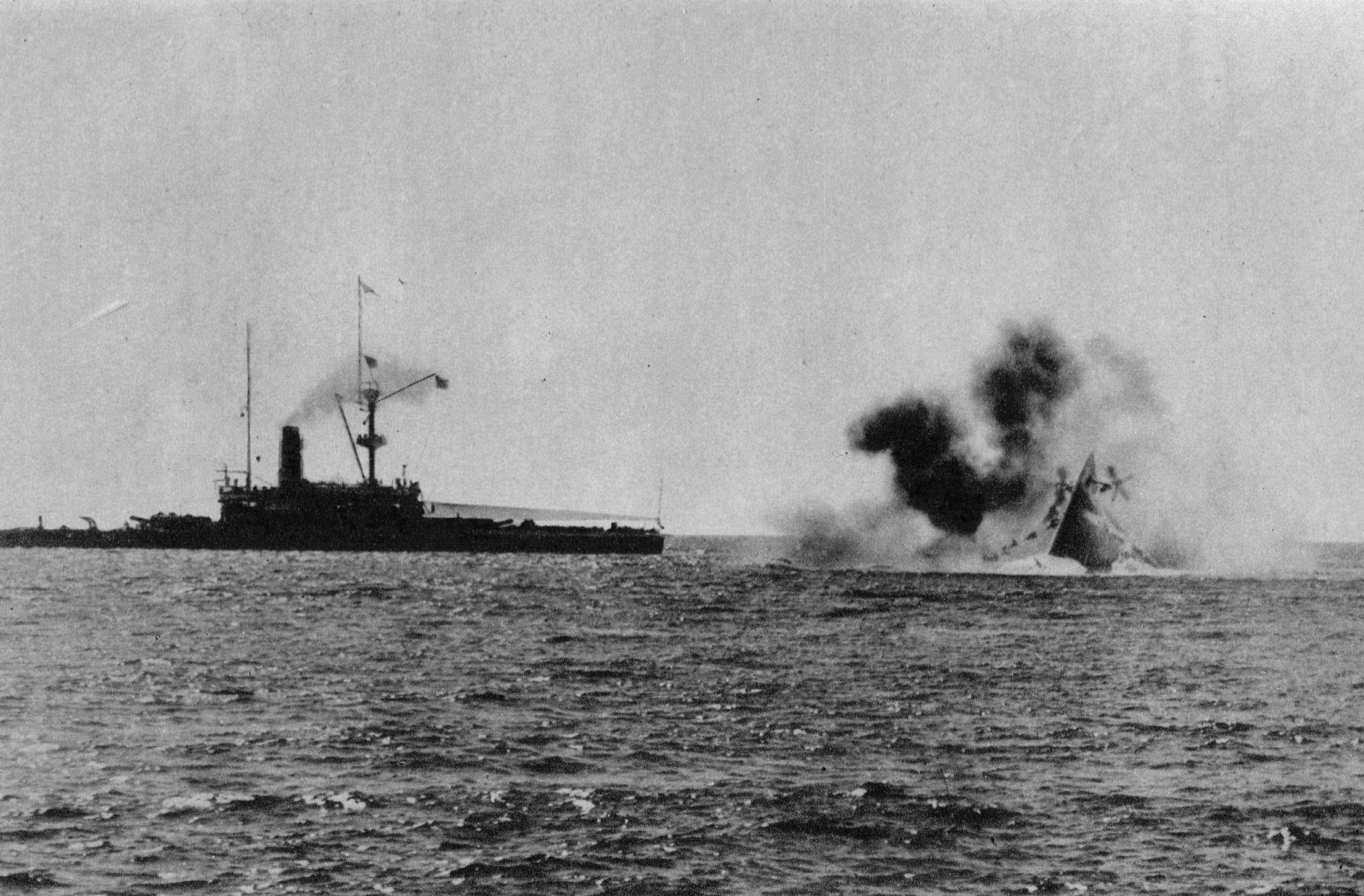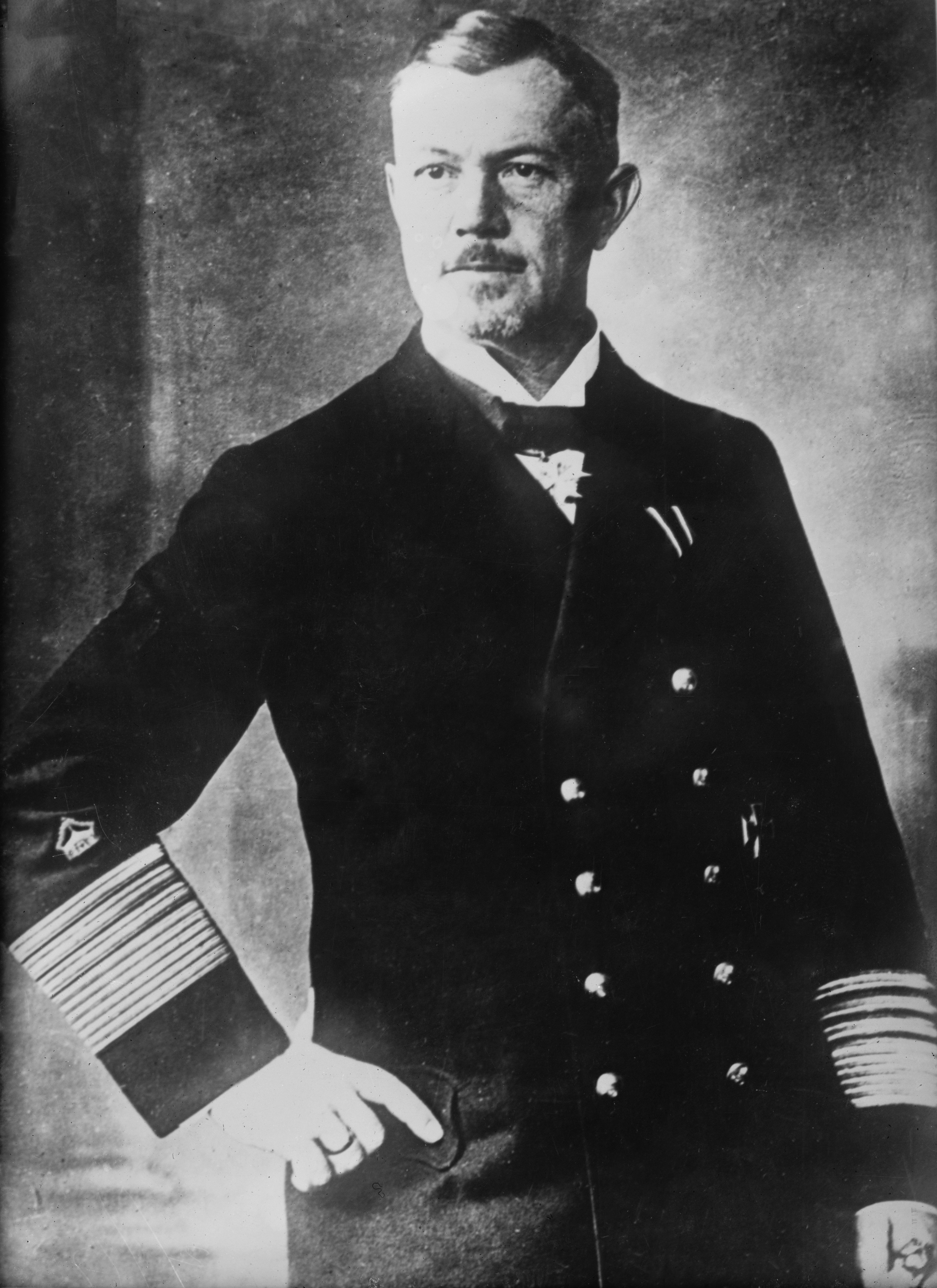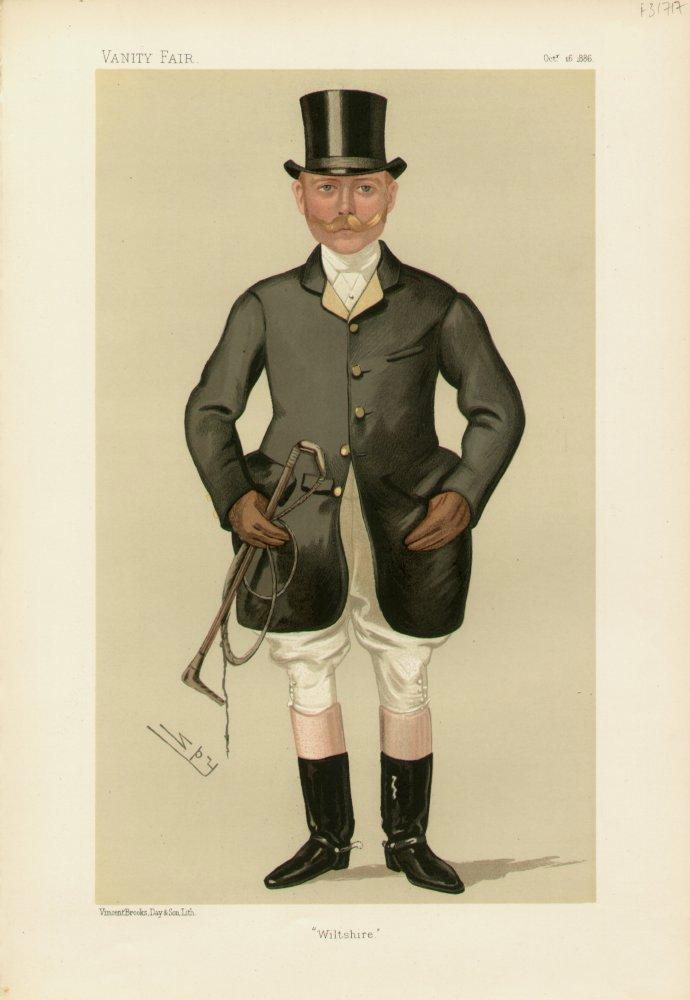|
John Ernest Harper
Vice-Admiral John Ernest Troyte Harper (29 May 1874 – 27 May 1949) was a British Royal Navy officer. Biography Harper was born in New Zealand and educated there at Christ's College. In 1888 he joined the Royal Navy, being promoted to Lieutenant in 1896. He served in the South African war from 1899 to 1900 and the Ogaden Somali expedition from 1900 to 1901. In March 1902 he was appointed to serve at the ''Aboukir'', deployed at the Mediterranean station. He was promoted to the rank of Commander in 1906, and was navigating commander of the Royal Yacht ''Victoria and Albert'' between 1911 and 1914. He became captain in 1913 and at the Naval Review of July 1914 served as master of the fleet. Battle of Jutland account He came to the attention of the public in the aftermath of the Battle of Jutland; after World War I was over, the Admiralty decided to commission an official account of the battle, and Harper was chosen to do this. The ''Harper Record'' was commissioned by ... [...More Info...] [...Related Items...] OR: [Wikipedia] [Google] [Baidu] |
New Zealand
New Zealand ( mi, Aotearoa ) is an island country in the southwestern Pacific Ocean. It consists of two main landmasses—the North Island () and the South Island ()—and over 700 smaller islands. It is the sixth-largest island country by area, covering . New Zealand is about east of Australia across the Tasman Sea and south of the islands of New Caledonia, Fiji, and Tonga. The country's varied topography and sharp mountain peaks, including the Southern Alps, owe much to tectonic uplift and volcanic eruptions. New Zealand's capital city is Wellington, and its most populous city is Auckland. The islands of New Zealand were the last large habitable land to be settled by humans. Between about 1280 and 1350, Polynesians began to settle in the islands and then developed a distinctive Māori culture. In 1642, the Dutch explorer Abel Tasman became the first European to sight and record New Zealand. In 1840, representatives of the United Kingdom and Māori chiefs ... [...More Info...] [...Related Items...] OR: [Wikipedia] [Google] [Baidu] |
World War I
World War I (28 July 1914 11 November 1918), often abbreviated as WWI, was one of the deadliest global conflicts in history. Belligerents included much of Europe, the Russian Empire, the United States, and the Ottoman Empire, with fighting occurring throughout Europe, the Middle East, Africa, the Pacific, and parts of Asia. An estimated 9 million soldiers were killed in combat, plus another 23 million wounded, while 5 million civilians died as a result of military action, hunger, and disease. Millions more died in genocides within the Ottoman Empire and in the 1918 influenza pandemic, which was exacerbated by the movement of combatants during the war. Prior to 1914, the European great powers were divided between the Triple Entente (comprising France, Russia, and Britain) and the Triple Alliance (containing Germany, Austria-Hungary, and Italy). Tensions in the Balkans came to a head on 28 June 1914, following the assassination of Archduke Franz Ferdin ... [...More Info...] [...Related Items...] OR: [Wikipedia] [Google] [Baidu] |
Governor
A governor is an administrative leader and head of a polity or political region, ranking under the head of state and in some cases, such as governors-general, as the head of state's official representative. Depending on the type of political region or polity, a ''governor'' may be either appointed or elected, and the governor's powers can vary significantly, depending on the public laws in place locally. The adjective pertaining to a governor is gubernatorial, from the Latin root ''gubernare''. Ancient empires Pre-Roman empires Though the legal and administrative framework of provinces, each administrated by a governor, was created by the Romans, the term ''governor'' has been a convenient term for historians to describe similar systems in antiquity. Indeed, many regions of the pre-Roman antiquity were ultimately replaced by Roman 'standardized' provincial governments after their conquest by Rome. Plato used the metaphor of turning the Ship of State with a rudder; the Latin ... [...More Info...] [...Related Items...] OR: [Wikipedia] [Google] [Baidu] |
Ernle Chatfield, 1st Baron Chatfield
Admiral of the Fleet Alfred Ernle Montacute Chatfield, 1st Baron Chatfield, (27 September 1873 – 15 November 1967) was a Royal Navy officer. During the First World War he was present as Sir David Beatty's Flag-Captain at the Battle of Heligoland Bight in August 1914, at the Battle of Dogger Bank in January 1915 and at the Battle of Jutland in May 1916. After the war he became Commander-in-Chief, Atlantic Fleet and then Commander-in-Chief, Mediterranean Fleet before serving as First Sea Lord in the mid-1930s in which role he won arguments that the Royal Navy should have 70 cruisers rather than the 50 cruisers that had been agreed at the Naval Conference of 1930, that the battleship still had an important role to play despite the development of the bomber and that the Fleet Air Arm should be part of the Royal Navy rather than the Royal Air Force. He subsequently served as Minister for Coordination of Defence in the early years of the Second World War. Naval career Ear ... [...More Info...] [...Related Items...] OR: [Wikipedia] [Google] [Baidu] |
John Jellicoe, 1st Earl Jellicoe
Admiral of the Fleet John Rushworth Jellicoe, 1st Earl Jellicoe, (5 December 1859 – 20 November 1935) was a Royal Navy officer. He fought in the Anglo-Egyptian War and the Boxer Rebellion and commanded the Grand Fleet at the Battle of Jutland in May 1916 during the First World War. His handling of the fleet at that battle was controversial. Jellicoe made no serious mistakes and the German High Seas Fleet retreated to port, at a time when defeat would have been catastrophic for Britain, but the public was disappointed that the Royal Navy had not won a more dramatic victory given that they outnumbered the enemy. Jellicoe later served as First Sea Lord, overseeing the expansion of the Naval Staff at the Admiralty and the introduction of convoys, but was relieved at the end of 1917. He also served as the Governor-General of New Zealand in the early 1920s. Early life Jellicoe was born on 5 December 1859 in Southampton, Hampshire. Jellicoe was the son of John Henry Jellicoe, a capta ... [...More Info...] [...Related Items...] OR: [Wikipedia] [Google] [Baidu] |
Reinhard Scheer
Carl Friedrich Heinrich Reinhard Scheer (30 September 1863 – 26 November 1928) was an Admiral in the Imperial German Navy (''Kaiserliche Marine''). Scheer joined the navy in 1879 as an officer cadet and progressed through the ranks, commanding cruisers and battleships, as well as senior staff positions on land. At the outbreak of World War I, Scheer was the commander of the II Battle Squadron of the High Seas Fleet. He then took command of the III Battle Squadron, which consisted of the newest and most powerful battleships in the navy. In January 1916, he was promoted to Admiral and given control of the High Seas Fleet. Scheer led the German fleet at the Battle of Jutland on 31 May – 1 June 1916, one of the largest naval battles in history. Following the battle, Scheer joined those calling for unrestricted submarine warfare against the Allies, a move the Kaiser eventually permitted. In August 1918, Scheer was promoted to the Chief of Naval Staff; Admiral Franz von Hipper rep ... [...More Info...] [...Related Items...] OR: [Wikipedia] [Google] [Baidu] |
Battle Cruiser
The battlecruiser (also written as battle cruiser or battle-cruiser) was a type of capital ship of the first half of the 20th century. These were similar in displacement, armament and cost to battleships, but differed in form and balance of attributes. Battlecruisers typically had thinner armour (to a varying degree) and a somewhat lighter main gun battery than contemporary battleships, installed on a longer hull with much higher engine power in order to attain greater speeds. The first battlecruisers were designed in the United Kingdom, as a development of the armoured cruiser, at the same time as the dreadnought succeeded the pre-dreadnought battleship. The goal of the design was to outrun any ship with similar armament, and chase down any ship with lesser armament; they were intended to hunt down slower, older armoured cruisers and destroy them with heavy gunfire while avoiding combat with the more powerful but slower battleships. However, as more and more battlecruisers were b ... [...More Info...] [...Related Items...] OR: [Wikipedia] [Google] [Baidu] |
David Beatty, 1st Earl Beatty
Admiral of the Fleet David Richard Beatty, 1st Earl Beatty (17 January 1871 – 12 March 1936) was a Royal Navy officer. After serving in the Mahdist War and then the response to the Boxer Rebellion, he commanded the 1st Battlecruiser Squadron at the Battle of Jutland in 1916, a tactically indecisive engagement after which his aggressive approach was contrasted with the caution of his commander Admiral Sir John Jellicoe. He is remembered for his comment at Jutland that "There seems to be something wrong with our bloody ships today", after two of his ships exploded. Later in the war he succeeded Jellicoe as Commander in Chief of the Grand Fleet, in which capacity he received the surrender of the German High Seas Fleet at the end of the war. He then followed Jellicoe's path a second time, serving as First Sea Lord—a position that Beatty held longer (7 years 9 months) than any other First Sea Lord. While First Sea Lord, he was involved in negotiating the Washington Naval Trea ... [...More Info...] [...Related Items...] OR: [Wikipedia] [Google] [Baidu] |
House Of Commons Of The United Kingdom
The House of Commons is the lower house of the Parliament of the United Kingdom. Like the upper house, the House of Lords, it meets in the Palace of Westminster in London, England. The House of Commons is an elected body consisting of 650 members known as members of Parliament (MPs). MPs are elected to represent constituencies by the first-past-the-post system and hold their seats until Parliament is dissolved. The House of Commons of England started to evolve in the 13th and 14th centuries. In 1707 it became the House of Commons of Great Britain after the political union with Scotland, and from 1800 it also became the House of Commons for Ireland after the political union of Great Britain and Ireland. In 1922, the body became the House of Commons of the United Kingdom of Great Britain and Northern Ireland after the independence of the Irish Free State. Under the Parliament Acts 1911 and 1949, the Lords' power to reject legislation was reduced to a delaying power. The g ... [...More Info...] [...Related Items...] OR: [Wikipedia] [Google] [Baidu] |
Walter Long, 1st Viscount Long
Walter Hume Long, 1st Viscount Long, (13 July 1854 – 26 September 1924), was a British Unionist politician. In a political career spanning over 40 years, he held office as President of the Board of Agriculture, President of the Local Government Board, Chief Secretary for Ireland, Secretary of State for the Colonies and First Lord of the Admiralty. He is also remembered for his links with Irish Unionism, and served as Leader of the Irish Unionist Party in the House of Commons from 1906 to 1910. Background and education Long was born at Bath, the eldest son of Richard Penruddocke Long, by his wife Charlotte Anna, daughter of William Wentworth FitzWilliam Dick (originally Hume). The 1st Baron Gisborough was his younger brother. On his father's side he was descended from an old family of Wiltshire gentry, and on his mother's side from Anglo-Irish gentry in County Wicklow. When young, Walter lived at Dolforgan Hall, Montgomeryshire, a property owned by his grandfather. Whil ... [...More Info...] [...Related Items...] OR: [Wikipedia] [Google] [Baidu] |
List Of The First Lords Of The Admiralty
The First Lord of the Admiralty, or formally the Office of the First Lord of the Admiralty, was the political head of the English and later British Royal Navy. He was the government's senior adviser on all naval affairs, responsible for the direction and control of the Admiralty, and also of general administration of the Naval Service of the Kingdom of England, Great Britain in the 18th century, and then the United Kingdom, including the Royal Navy, the Royal Marines, and other services. It was one of the earliest known permanent government posts. Apart from being the political head of the Naval Service the post holder was simultaneously the pre-eminent member of the Board of Admiralty. The office of First Lord of the Admiralty existed from 1628 until it was abolished when the Admiralty, Air Ministry, Ministry of Defence, and War Office were all merged to form the new Ministry of Defence in 1964. Its modern-day equivalent is the Secretary of State for Defence. History In 1628, ... [...More Info...] [...Related Items...] OR: [Wikipedia] [Google] [Baidu] |
Parliament Of The United Kingdom
The Parliament of the United Kingdom is the supreme legislative body of the United Kingdom, the Crown Dependencies and the British Overseas Territories. It meets at the Palace of Westminster, London. It alone possesses legislative supremacy and thereby ultimate power over all other political bodies in the UK and the overseas territories. Parliament is bicameral but has three parts, consisting of the sovereign ( King-in-Parliament), the House of Lords, and the House of Commons (the primary chamber). In theory, power is officially vested in the King-in-Parliament. However, the Crown normally acts on the advice of the prime minister, and the powers of the House of Lords are limited to only delaying legislation; thus power is ''de facto'' vested in the House of Commons. The House of Commons is an elected chamber with elections to 650 single-member constituencies held at least every five years under the first-past-the-post system. By constitutional convention, all governme ... [...More Info...] [...Related Items...] OR: [Wikipedia] [Google] [Baidu] |



_-_March_17%2C_1924.jpg)




